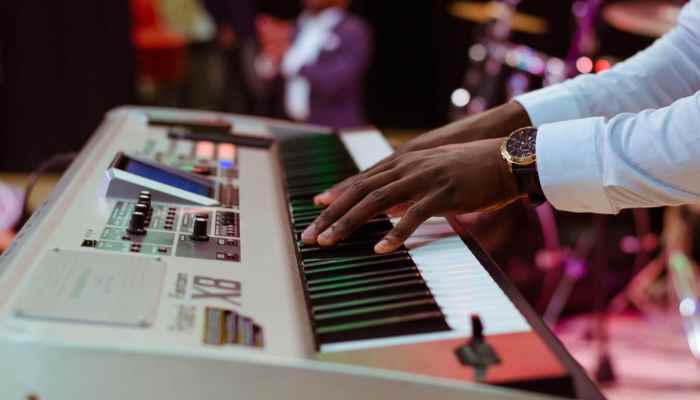Are you in love with electronic keyboards? And want to move further in your journey with the best keyboard! You’ve come to the right place. So, keep your worries away because I’m here with the best-ever guide on How to Choose the Right Electronic Keyboard for Beginners.
Building a world of your own music is not a simple thing. And this process starts with choosing the one that’s made for you. So, let’s hop on this exciting ride!
Understanding Electronic Keyboards

One fundamental thing before you buy anything is to research what exactly it is and every necessary information concerning it. So, let’s start by understanding what is really an electronic keyboard.
An electronic keyboard is more or less like a traditional piano. It is very versatile and has an array of rhythms, melodies and features. In simple words, it is perfect for those starting their musical career as they are more affordable and more compact.
Types of Electronic Keyboards
1. Basic Keyboards: These are straightforward and great for beginners. They offer essential features and are more budget-friendly. Hence, it is perfect if you’re just beginning to explore the world of keys.
2. Portable MIDI Keyboards: If you’re a tech-savvy beginner, MIDI keyboards are best for you. You can connect them to computers and devices to create music digitally. Think of them as your musical sketchpad.
3. Digital Pianos: Are you looking for an experience close to playing an acoustic piano? Digital pianos offer weighted keys that resemble the feel of real piano keys. They’re heavier but will provide a realistic playing experience.
Key Factors to Consider
Choosing the right keyboard involves considering a few crucial factors:
- Number of Keys: Keyboards come with various key counts. 61 keys are great for beginners, while 88 keys offer a full piano range.
- Weighted Keys: If you’re serious about piano skills, opt for weighted keys. These keyboards can resemble a piano’s hammer action, which will enhance your finger strength and control.
- Polyphony: Polyphony refers to how many notes a keyboard can produce simultaneously. Aim for at least 32-note polyphony for smoother melodies.
- Built-in Sounds: From pianos and strings to drums and synths, built-in sounds add variety to your practice sessions.
- Connectivity: USB, MIDI, and headphone outputs are essential for connecting to devices, recording, and practising silently.
Brands and Budget
When it comes to brands, options are as diverse as musical genres. Brands like Yamaha, Casio, and Roland are known for their quality. However, if you are a beginner, you can choose a medium-range keyboard that will balance the budget and features.
Trying Before Buying
Imagine test-driving a car before buying it. The same goes for keyboards! Visit a music store, touch the keys, listen to the sounds, and feel the vibe. It’s like choosing your musical companion.
Conclusion
So, the guide How to Choose the Right Electronic Keyboard for Beginners, was it helpful? Choosing your first electronic keyboard doesn’t have to be a symphony of confusion. Keep in mind the types, features, and your own musical aspirations. And don’t forget to try the keyboard, touch the keys and feel the sound before finally buying it.
Whether you aim to compose melodies that touch hearts or simply jam with friends, the right keyboard will be your faithful partner.
FAQs
1: Do I need a keyboard with 88 keys as a beginner?
Not necessarily. 61 keys are sufficient for most beginners. If you’re more interested in classical piano, then consider an 88-key keyboard.
2: What’s the difference between touch-sensitive and weighted keys?
Touch-sensitive keys respond to your touch intensity, while weighted keys give you the feel of a traditional piano.
3: Can I use a MIDI keyboard without a computer?
While MIDI keyboards are designed to connect to computers, many can also work as standalone devices, playing built-in sounds.
4: Are headphones necessary for practising?
Headphones are beneficial. They can help you practice without disturbing others and help you focus on playing.